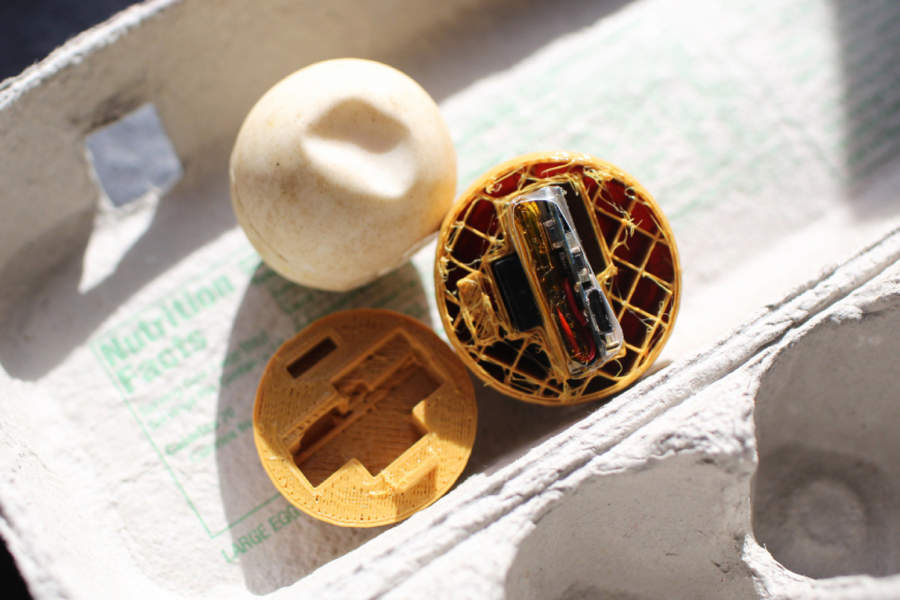InvestEGGator
A recent invention may be able to save endangered sea turtle populations.
The inside of an InvestEGGator.
October 29, 2020
Beaches may look calming and peaceful on the outside, but the behind-the-scenes acts will shock you. According to Paso Pacifio, more than 90% of sea turtle eggs are taken from their nests and sold illegally. Scientists have scrambled up an invention to help stop this.
Paso Pacifio reported that scientist Kim Williams-Guillén, who was very concerned with this situation, came up with an amazing solution: fake sea turtle eggs containing a GPS tracker. In doing this, scientists hope to be able to catch the poachers who are endangering sea turtle population by selling their eggs.
William-Guillén and the other scientists worked together to create the decoy. News for Kids states that the scientists used a 3D printer to create a ball about the size of a ping pong ball. The decoy has the same squishy exterior and was designed to match the texture and color of a sea turtle egg. There is a small slit in the middle of the ball where the electronics are inserted. The fake egg works like a cell phone. It has a battery, a GPS, and a way to connect to a network, so as long as it has a cell signal, the egg can report its location back to the scientists every hour. The scientists named the finished product the InvestEGGator. The eggs were put into 101 different nests and 25% of the decoys were taken. Unfortunately, only a handful of the eggs showed results. As stated by Science, some of the thieves realized that a few of the eggs were electronic and left them on the beach. But not all of the thieves detected the fake eggs, and scientists were able to track one as far as 85 miles inland. They travelled all the way to the back alley of a supermarket. Scientists figured that the poachers probably gave the eggs to a salesperson who went from door to door, selling them.
Science states that by understanding the chain, researchers can pinpoint trading hotspots. William-Guillén said that the tracker is not a way to catch the poachers, many of which are living in poor conditions, but rather a tool to understand their roots. Héctor Barrios-Garrido, a conservation biologist, pointed out that stopping trafficking is not simple. You can’t just hand the data to the authorities and let them make arrests. Across Central America, trading sea turtle eggs can be legally ambiguous. In Costa Rica it’s illegal to poach and sell the eggs, but buying them is not considered a crime. Barrios-Garrido stated that this issue “… is not black and white.”
Scientists are still pleased overall with the results, which showed that these types of experiments work well. They are even thinking of using the GPS tracker to help track other endangered species. Williams-Guillén and her colleagues are working hard to get their decoy eggs to other sea turtle conservation organizations (Related: take a look at other marine conservation efforts).









